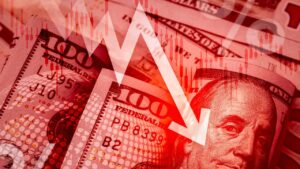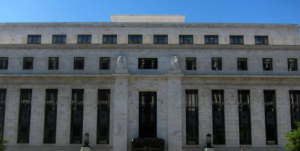JPMorgan Warns: Markets Underestimating U.S. Recession Risks—Financial experts at JPMorgan Chase caution that investors are overlooking key warning signs of a potential economic downturn in the United States. With market volatility rising and economic indicators flashing red, the probability of a U.S. recession is increasing. JPMorgan’s latest analysis suggests that financial markets are failing to fully price in the risks associated with inflation, interest rate hikes, and global instability.
JPMorgan Raises U.S. Recession Probability to 40%
JPMorgan’s chief economist Bruce Kasman has revised the probability of a U.S. recession to 40%, up from 30% in previous estimates. This increase is due to multiple warning signs emerging from various sectors of the economy.
Understanding the Key Factors Contributing to Recession Risks
To better understand why JPMorgan believes a recession is becoming more likely, let’s examine key economic indicators:
| Economic Indicator | Current Trend | Why It Matters? |
|---|---|---|
| Consumer Spending | -1.2% decline in February | Reduced spending weakens business revenues, leading to job cuts. |
| Unemployment Claims | Increased by 10% in March | More jobless claims indicate economic slowdowns and hiring freezes. |
| Yield Curve Inversion | Continues inverted | A strong historical predictor of economic downturns. |
Market Volatility and Investor Sentiment
Despite warning signs, stock markets remain volatile with sharp fluctuations. Some investors speculate on short-term gains, while others worry about long-term instability. However, this short-term optimism could be misleading as core economic fundamentals remain weak.
How Market Volatility Affects Your Investments
Market volatility affects investors differently based on their risk tolerance and financial goals:
- Short-Term Traders: Benefit from quick fluctuations but face high risks.
- Long-Term Investors: May see a decline in portfolio value if recession hits.
- Retirement Planners: Should reassess portfolios to avoid potential losses.
Corporate Sector Faces Challenges
Many U.S. businesses are struggling due to higher borrowing costs and declining consumer demand. Key industries affected include:
- Retail: Consumer spending slowdowns are hitting major retailers, forcing cost-cutting measures.
- Technology: Tech firms are experiencing reduced venture capital funding and delayed hiring.
- Manufacturing: Supply chain disruptions and higher material costs are squeezing profit margins.
How Businesses Are Responding
- Some companies are cutting jobs to manage costs.
- Others are reducing investments in expansion and innovation.
- Many businesses are shifting to cost-saving strategies, including automation and outsourcing.
What This Means for Investors
JPMorgan suggests investors take precautionary measures to protect their portfolios. Here are three steps investors can take:
- Diversify Your Portfolio: Invest in different asset classes, including bonds and gold.
- Focus on Defensive Sectors: Utilities and healthcare stocks tend to perform better in downturns.
- Hedge Against Risk: Consider options or alternative investments to minimize losses.
How Consumers Can Prepare for Economic Uncertainty
A potential recession can impact individuals in various ways, from job insecurity to higher costs of living. Here’s how consumers can safeguard their finances:
- Build an Emergency Fund: Aim to save at least six months’ worth of expenses.
- Cut Unnecessary Expenses: Reduce discretionary spending on luxury items and dining out.
- Pay Down Debt: High-interest loans can become unmanageable during economic downturns.
Financial Planning Mind Map for a Potential Recession
+-----------------------+
| Economic Uncertainty |
+-----------------------+
|
+----------------+----------------+
| | |
+----------------+ +----------------+ +----------------+
| Emergency Fund | | Reduce Debt | | Cut Expenses |
+----------------+ +----------------+ +----------------+Expert Analysis: Where the U.S. Economy Is Headed
While some analysts believe the U.S. may avoid a deep recession, risks remain high due to global instability, inflation, and trade disruptions. The Federal Reserve’s next policy decisions will play a crucial role in determining whether the economy stabilizes or enters a downturn.
Conclusion
JPMorgan’s latest recession warning highlights the importance of staying informed and prepared. Investors should reassess their portfolios, businesses must strategize for financial resilience, and consumers should focus on building financial security.
By understanding economic signals and taking proactive steps, individuals and businesses can mitigate risks and navigate uncertain times more effectively.
Read the latest official economic report from the Federal Reserve here.





